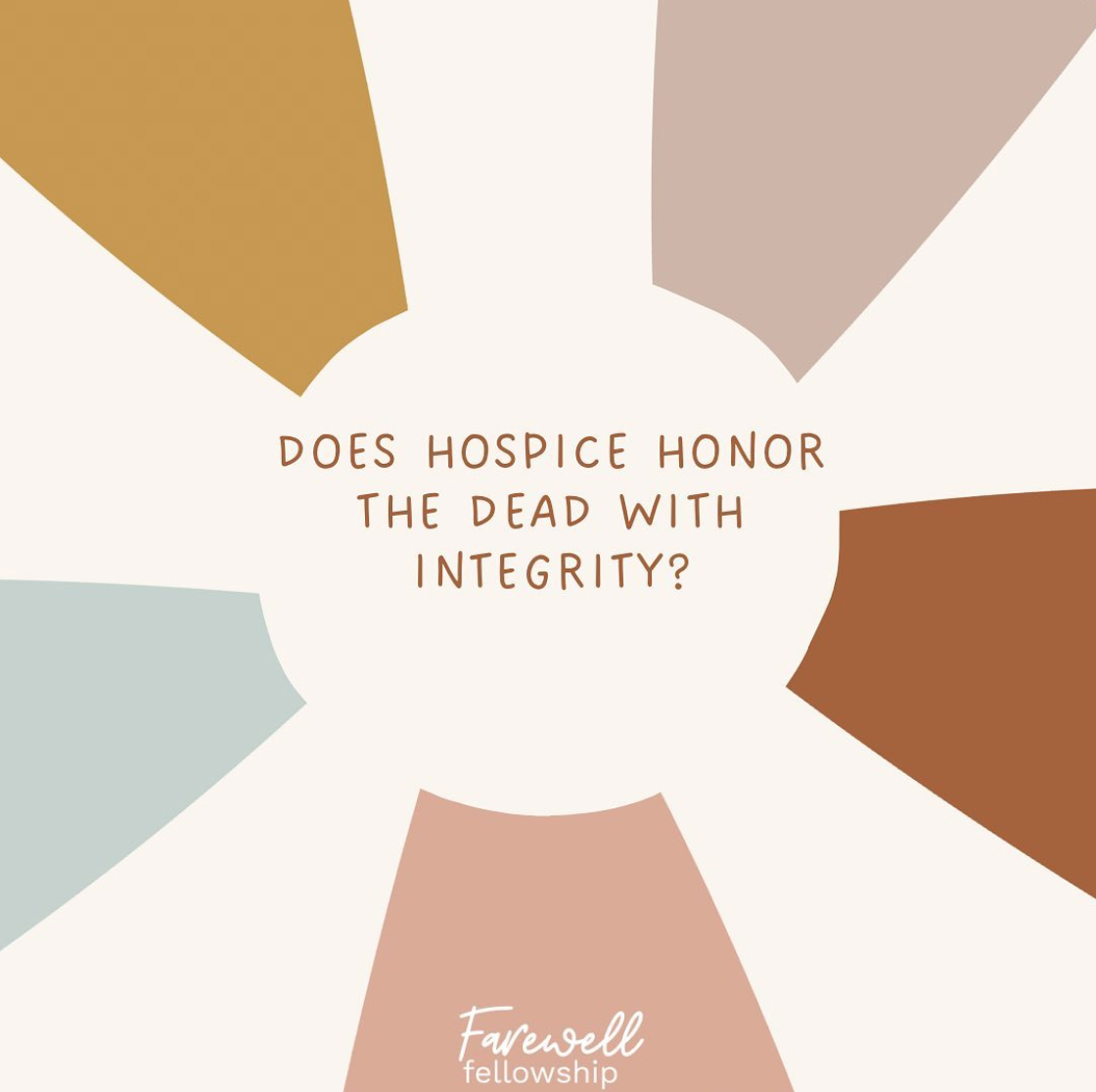Honoring the Dead
I hate the way we care for our dead in this society. After months of caring for a dying body: soothing its sores, brushing its hair, massaging its skin, wetting dry lips and wiping leaked tears, sometimes crawling into bed in the wee hours to hold an agitated body with soft tenderness, I hate the efficient way it is cared for in the hour following the death.
I hate the detachment, I hate the lack of reverence, I hate the mundane routine of this being just a part of the work. I hate that families aren’t asked if they’d like to honor the body in sacred washing or anointing. I hate that we have exported this care to professionals. I hate the briskness of the funeral home attendants as they come to collect their property. I hate that bodies are wheeled out of the back door of the hospice house. I especially hate the body bag.
I’m not here to list a litany of offenses. But I wonder: if we cared for the dead with more reverence, would we collectively have less death anxiety? If we asked our hospice staff to show up ready to bring sacred care to each body, would they have to do more grief tending on their own and rely less on detachment? If we allowed or even encouraged families to tend to their dead in holy tenderness instead of displacing responsibility on clinical staff, would our grief be easier to bear? How would our system look if we kept reverence - not efficiency - at the pinnacle of serving the dying and the dead? As if they are experiencing a holy, transcendent moment and not one of grotesque failure? Would our perspective on dying and death shift? Would people stop staying to us deathworkers, “I don’t know how you do that” and instead whisper, “What an honor that you are called into such sacred spaces.”
Does hospice honor the dead with integrity?
*I understand that every hospice is different. I also understand that some families view the body as a shell and do not wish to care for it following the death of their loved one. I completely support their choice, I’m speaking of my grief and our collective approach to care of the dead.

